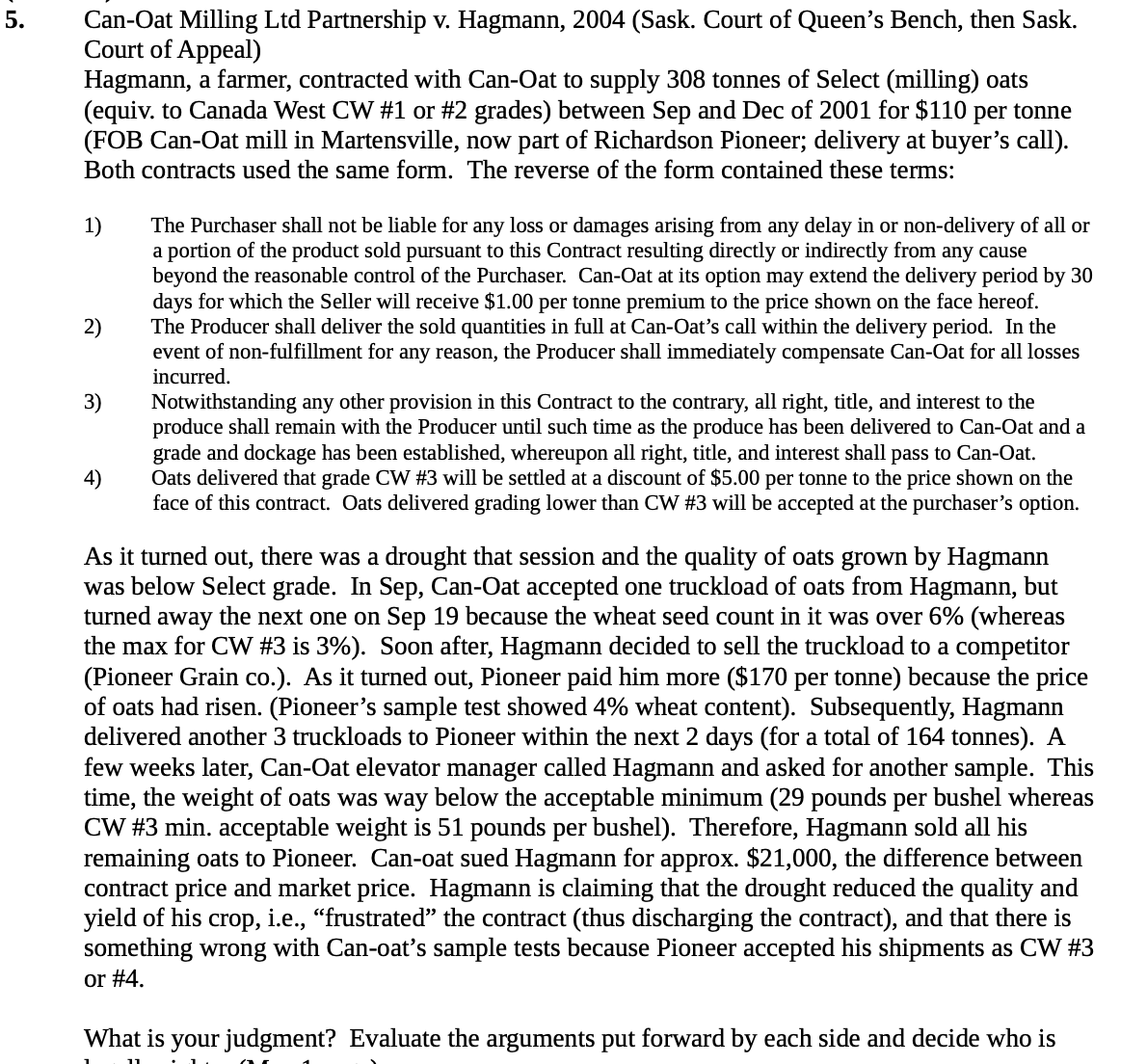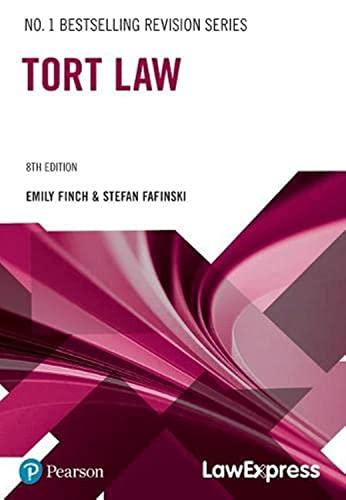Can-Oat Milling Ltd Partnership v. Hagmann, 2004 (Sask. Court of Queen's Bench, then Sask. Court of Appeal) Hagmann, a farmer, contracted with Can-Oat to supply 308 tonnes of Select (milling) oats (equiv. to Canada West CW #1 or #2 grades) between Sep and Dec of 2001 for $110 per tonne (FOB Can-Oat mill in Martensville, now part of Richardson Pioneer; delivery at buyer's call). Both contracts used the same form. The reverse of the form contained these terms: 1) The Purchaser shall not be liable for any loss or damages arising from any delay in or non-delivery of all or a portion of the product sold pursuant to this Contract resulting directly or indirectly from any cause beyond the reasonable control of the Purchaser. Can-Oat at its option may extend the delivery period by 30 days for which the Seller will receive $1.00 per tonne premium to the price shown on the face hereof. 2) The Producer shall deliver the sold quantities in full at Can-Oat's call within the delivery period. In the event of non-fulfillment for any reason, the Producer shall immediately compensate Can-Oat for all losses incurred. 3) Notwithstanding any other provision in this Contract to the contrary, all right, title, and interest to the produce shall remain with the Producer until such time as the produce has been delivered to Can-Oat and a grade and dockage has been established, whereupon all right, title, and interest shall pass to Can-Oat. 4) Oats delivered that grade CW #3 will be settled at a discount of $5.00 per tonne to the price shown on the face of this contract. Oats delivered grading lower than CW #3 will be accepted at the purchaser's option. As it turned out, there was a drought that session and the quality of oats grown by Hagmann was below Select grade. In Sep, Can-Oat accepted one truckload of oats from Hagmann, but turned away the next one on Sep 19 because the wheat seed count in it was over 6% (whereas the max for CW #3 is 3%). Soon after, Hagmann decided to sell the truckload to a competitor (Pioneer Grain co.). As it turned out, Pioneer paid him more ($170 per tonne) because the price of oats had risen. (Pioneer's sample test showed 4% wheat content). Subsequently, Hagmann delivered another 3 truckloads to Pioneer within the next 2 days (for a total of 164 tonnes). A few weeks later, Can-Oat elevator manager called Hagmann and asked for another sample. This time, the weight of oats was way below the acceptable minimum (29 pounds per bushel whereas CW #3 min. acceptable weight is 51 pounds per bushel). Therefore, Hagmann sold all his remaining oats to Pioneer. Can-oat sued Hagmann for approx. $21,000, the difference between contract price and market price. Hagmann is claiming that the drought reduced the quality and yield of his crop, i.e., \"frustrated\" the contract (thus discharging the contract), and that there is something wrong with Can-oat's sample tests because Pioneer accepted his shipments as CW #3 or #4. What is your judgment? Evaluate the arguments put forward by each side and decide who is In







